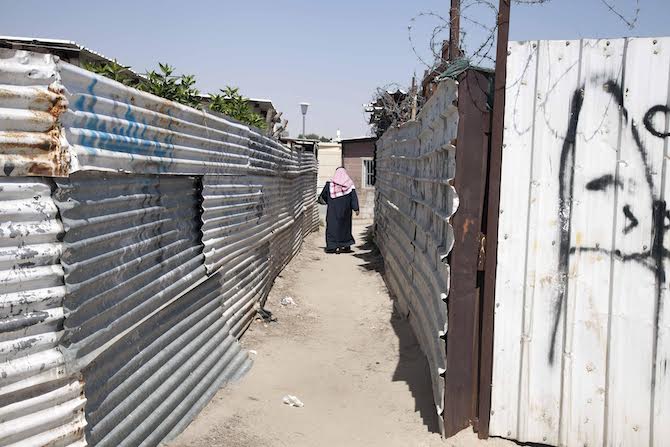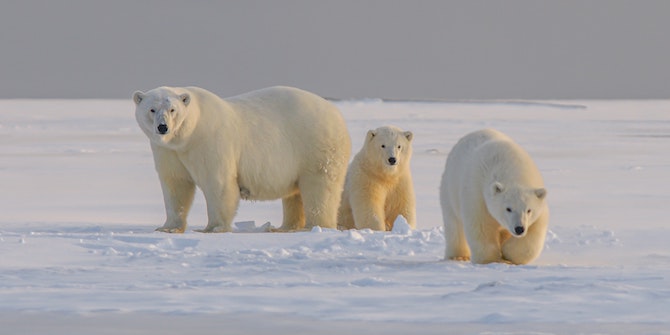by Thomas McGee

As COVID-19 continues to pose a threat to individuals and health systems around the world, there has been much discussion about how to protect those most at risk. Rightly, attention has focused on the necessary provision of protective equipment for frontline health-workers, as well as social measures to ‘shield’ the elderly and individuals with underlying health vulnerabilities from exposure to the virus. At the same time, a recent joint statement by UN agencies has highlighted other groups of people who may be at heightened risk due to their legal status and the restrictions this imposes on their living conditions. The risks faced by stateless persons are often overlooked; so too is their agency to respond to such a crisis.
Heightened Vulnerability for Stateless Persons Globally
The UN statement reminds us of the many refugees, migrants and stateless persons around the world who ‘live in overcrowded camps, settlements, makeshift shelters or reception centres, where they lack adequate access to health services, clean water and sanitation.’ Such conditions expose them to increased risk in the face of the threat presented by the coronavirus. Stateless and undocumented persons may also face denial of access to vital healthcare and testing services, both due to limitations on their freedom of movement and admittance at health facilities.
While Portugal has responded positively to this situation by granting temporary citizenship rights to migrants, there is increased concern about the situation for migrants, refugees and stateless persons in other parts of the world. For example, the risk of COVID-19 in the 34 refugee camps and settlements where stateless Rohingya live, often in squalid conditions, in Bangladesh is certainly cause for alarm. Human Rights Watch has likewise issued a statement calling for Malaysia to ensure that migrants and stateless persons can access health care without discrimination.
Stateless Bidoon Step Up to Counter the Virus in Kuwait
Meanwhile, the response to the pandemic in Kuwait has presented some within the stateless Bidoon population with an unexpected opportunity for civic engagement, as they have stepped forward as healthcare volunteers. This has further allowed for public recognition of their selfless national duty, given that official government rhetoric has long questioned the Bidoons’ loyalty to the state. While the Bidoon are generally unable to access public healthcare in Kuwait, when the Ministry of Interior called for unpaid volunteers to join the frontline medical response to COVID-19 in mid-March, a remarkable number of stateless medical doctors and nurses signed up. These same individuals have otherwise been excluded from the possibility of paid public sector employment in their fields of educational expertise, and many have persevered against severe obstacles in order to complete their education and gain qualifications. More broadly, the Bidoon have been significantly economically disadvantaged against the backdrop of Kuwait’s immense petroleum-based wealth.
Their dedication to respond to the current national needs has garnered praise from Kuwaiti society, generating calls for their being rewarded by naturalisation as Kuwaiti citizens. As one twitter user wrote, ‘the least that can be done is to grant nationality to all our Bidoon brothers and sisters who have participated with good spirits in the medical efforts to combat the Coronavirus in Kuwait.’ These medical professionals have emerged from the crisis as strong advocates on behalf of the wider community of excluded Bidoon. Their actions, moreover, serve to counter the social stigma and suspicion that the state has often perpetuated surrounding the statelessness problem it refuses to resolve.
A series of Arabic-language hashtags have recently spread across Kuwaiti social media in tribute to the remarkable commitments of these legally marginalised healthcare workers: ‘Bidoon ready to serve Kuwait,’ reads one. This has reignited the debate around the historic deprivation of more than a hundred thousand Bidoon from many of their civil rights while they have contributed to Kuwaiti society across several generations. In the shadow of the virus, non-Bidoon have shown solidarity with the plight of the stateless, using the hashtag ‘The Bidoon: Between the Epidemic and Injustice’ and calling to ‘Employ Bidoon Doctors and Nurses.’ Significantly, much of the language used by Kuwaiti commentators at this time of crisis refers to ‘Kuwaiti Bidoon,’ directly challenging the government discourse that the Bidoon are foreigners with no connection to the country.
One of the many Bidoon medical volunteers part of the frontline response, Dr Tifla al-Shamari (a Bidoon dentist) told media: ‘I didn’t see a single one of my colleagues hesitating even for a moment … when we heard there was need, we came straight away.’ The present spotlight on the issue, alongside the unusually strong positive reaction from the mainstream Kuwaiti public, is an important development following the failure of advocacy on the issue to gain traction in recent years. The new form of activism through the volunteerism of medical professionals presents a renewed call for the state to consider solutions to the problem of all the disadvantaged Bidoon in order to allow their effective participation in society. In broader terms, the COVID-19 crisis highlights how stateless persons, despite their particular vulnerabilities, are also actors with agency, and often their own strong motivations to act for the betterment of their communities.







A very thoughtful piece indeed. More such analysis is needed to understand the lived experiences of those excluded socially, ecologically and politically in Kuwaiti.
Very important article that shows marginalised people’s willingness to prove themselves to soceity, while others don’t have to. What I may add, as inspired by your insights, is that we should be careful of selling/buying the idea that those how volunteered deserve to be “rewarded”, because such as discourse would further marginalise those who were deprived from education and couldn’t volunteer.